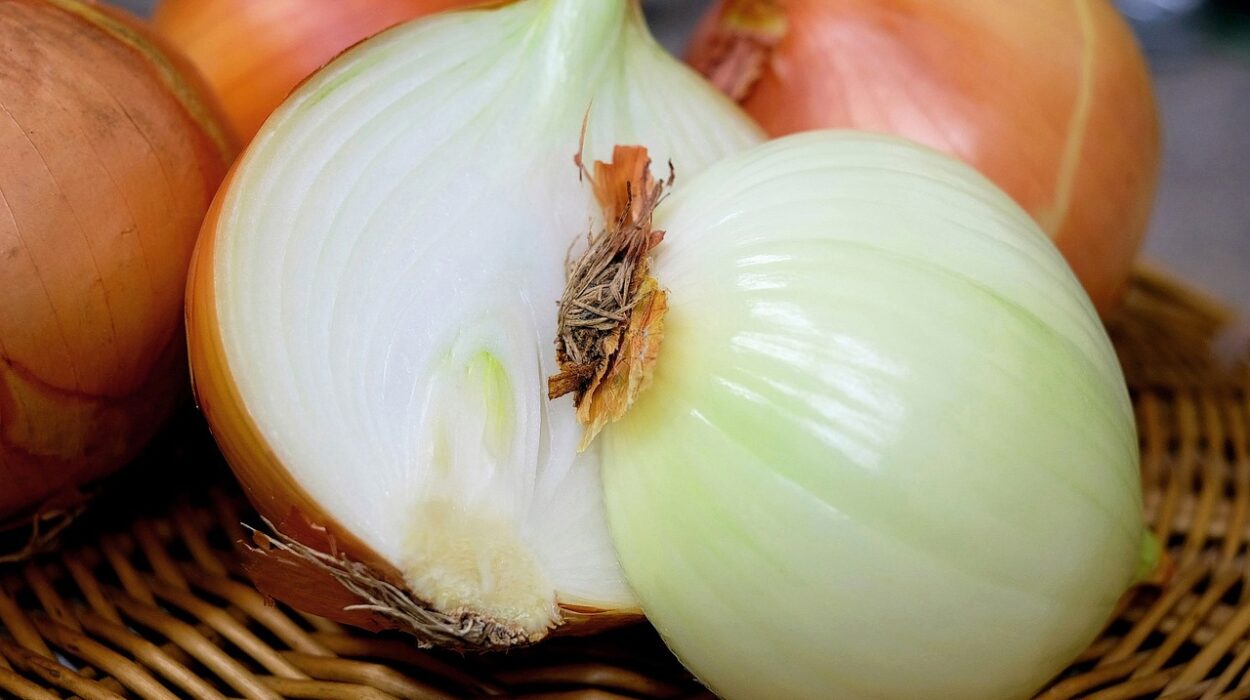Onions, the unsung heroes of the kitchen, occupy a unique position where flavor and health intersect. These nutritional powerhouses offer a wide range of benefits that significantly contribute to our overall wellness.
Onions are a fundamental vegetable in numerous global cuisines, highly valued for their unique flavor and remarkable adaptability in culinary applications. Nevertheless, the advantages of onions extend far beyond their gustatory and nutritional qualities.
Onions are high in fiber, carbs, protein, fat, sugar, B and C vitamins, and phosphorus. Because of their high nutrient content, they are widely used in traditional remedies throughout the world, including India.
However, it is still unclear whether onions are beneficial for people with diabetes. Some studies suggest that onions have potential benefits for diabetics, but further research is needed to confirm these findings.
Benefits Of Eating Onions
1. Control Blood Sugar Levels

Onions are high in flavonoids and sulfur compounds, which have been found to have sugar-lowering qualities. These remarkable substances can help to regulate insulin levels and improve glucose metabolism, making them extremely beneficial for diabetics.
A 2011 study found that giving people with type 2 diabetes onion extract for four weeks significantly lowered their fasting blood sugar levels. Furthermore, a regular intake of raw onions was found to lower blood sugar levels in those diagnosed with type 1 diabetes, according to another study.
2. Improve Heart Health

Diabetes patients are at a higher risk of developing heart disease; therefore, maintaining optimal heart health is critical. Because of their high antioxidant content, particularly quercetin, onions make an excellent ally in this endeavor. Scientific data has consistently shown that these antioxidants protect the heart.
The study also showed that eating onions can successfully lower blood pressure and cholesterol, two things that are known to be risk factors for heart disease. In one particular study, people with type 2 diabetes showed a significant drop in blood pressure following a daily consumption of 100 grams of onions over a period of eight weeks.
3. Boost Immune Function

It’s important to keep your immune system strong because diabetics are more susceptible to infections. Rich in vitamin C and other antioxidants, onions can effectively strengthen the immune system and offer protection from illnesses.
Did you know that eating onions on a regular basis might improve your immune system and reduce your risk of getting sick, especially in the elderly? A new study has revealed that onions can boost immune function and minimize the risk of illness.
You Can Also Read: Tech Tools for Triumph: Meet the 8 Productivity Apps Shaping Success
4. Weight Loss

Maintaining a healthy weight is essential for those with diabetes because gaining excess weight can exacerbate the illness. The low calorie and high fiber content of onions make them an excellent option. By combining these two benefits, you can cut calories overall and feel content and full.
Research has revealed that munching on onions can actually aid in shedding those extra pounds and enhancing body composition, especially for folks dealing with obesity.
5. Support Digestive Health

People with diabetes face an elevated susceptibility to encountering digestive complications, including constipation and gastroparesis. However, the consumption of onions, renowned for their abundance of prebiotic fiber, can play a pivotal role in fostering the proliferation of advantageous gut bacteria and enhancing overall digestive functionality.
The study discovered that eating onions can enhance digestive function and alleviate constipation symptoms in older adults.
The Bottom Line
People with diabetes can benefit greatly from including onions in their diet. They include sulfur compounds and quercetin, two bioactive substances that may help regulate blood sugar levels, and they have a low glycemic index.
Onions can actually help improve insulin sensitivity, reduce inflammation, and promote better metabolic health. However, if you have diabetes, it’s important to include onions as part of a well-rounded diet and be mindful of portion sizes to control your carbohydrate intake.
